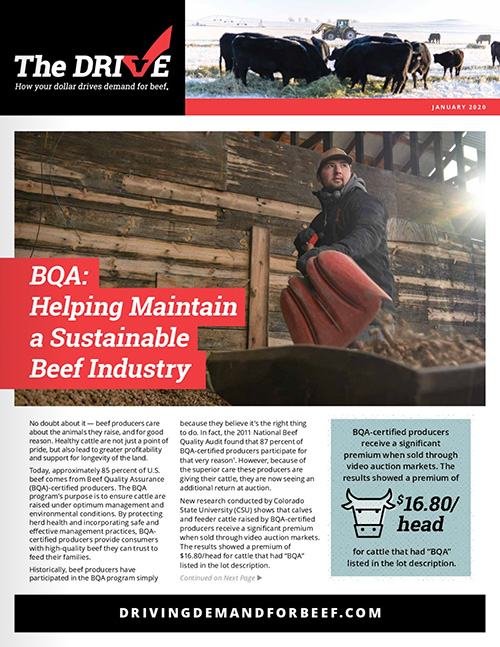Beef Safety Request for Proposals
On behalf of the Beef Checkoff, the Foundation for Meat and Poultry Research and Education (FMPRE) and the National Cattlemen’s Beef Association (NCBA) partnered to issue a beef safety request for proposals addressing three high-priority research topics. All research priorities focused on Salmonella in ground beef products and ways to better understand and reduce the pathogen’s presence.
• Risk assessment model to assess the impact on public health of ground beef lots based on the contamination level and presence of highly virulent or multidrug-resistant strains.
• Using empirical evidence, modeling and risk assessment methods to estimate the public health impact of incorporating enumeration and virulence as part of the criteria for evaluating Salmonella contamination in ground beef in the U.S.
• Evidence-based, quantitative risk assessment to control salmonellosis attributable to ground beef – evaluating and mitigating the contribution of lymph nodes to Salmonella contamination.
Additional projects are under consideration for collaborative funding. Using outbreak data through 2018, the Interagency Food Safety Analytics Collaboration (IFSAC) estimates that approximately 5.7 percent of foodborne salmonellosis in the U.S. is attributable to beef. 1The funding provided by beef farmers and ranchers to support Salmonella research efforts protects public health and enhances consumer confidence in beef products.
The Beef Checkoff program was established as part of the 1985 Farm Bill. The checkoff assesses $1 per head on the sale of live domestic and imported cattle, in addition to a comparable assessment on imported beef and beef products. States may retain up to 50 cents on the dollar and forward the other 50 cents per head to the Cattlemen’s Beef Promotion and Research Board, which administers the national checkoff program, subject to USDA approval.

